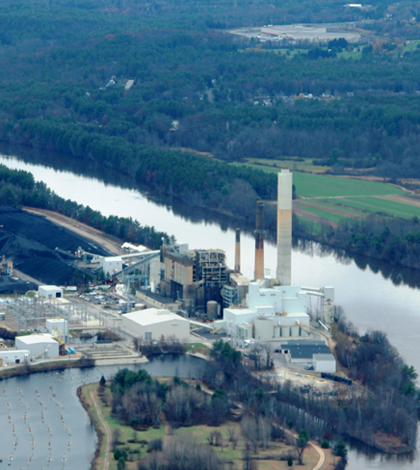Study finds thermal pollution stays in rivers

Coal-fired power plant on the Merrimack River in Bow, N.H. (Credit: ASSIST Aviation Solutions)
A group of scientists has found that the majority of thermal pollution entering rivers from power plants in the U.S. stays in the water and eventually makes it to the ocean, according to a University of New Hampshire press release.
The study examines the effects of power plants that produce electricity by boiling water to create steam, which turns turbines attached to generators that create electricity. The study focuses on riverine systems and power plants in the Northeast.
Click here to see a short video of the scientists explaining the basics of their modeling.
According to the study, only 11 percent of heat transferred from power plants into rivers radiates into the atmosphere. Just over 30 percent of heat energy created by power plants becomes electrical energy and just less than 30 percent enters rivers.
The thermal pollution can have negative effects on sensitive wildlife in rivers.
Click here to read the study for free.
Image: Coal-fired power plant on the Merrimack River in Bow, N.H. The plant discharges warmed water to the river which then transports, dilutes, and re-equilibrates heat. (Credit: ASSIST Aviation Solutions)





0 comments